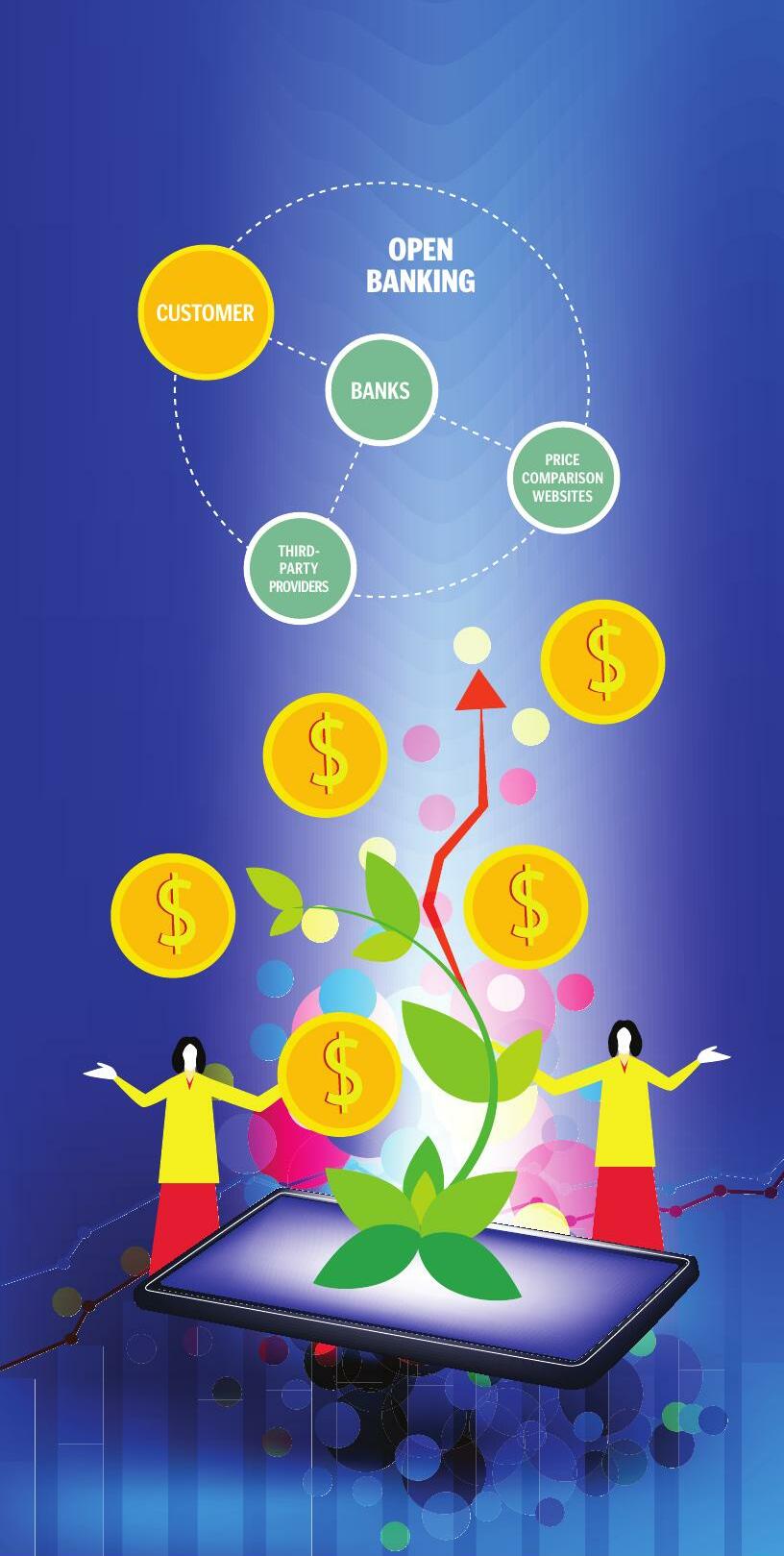
Giving bank customers access to their own transaction data and allowing them to share it with other banks or fintechs was supposed to foster greater competition in banking by helping consumers get better deals.
This promise hasn't yet come to fruition, but proponents believe open banking's potential will soon be realised.
It is part of the recently introduced Consumer Data Right (CDR), which gives customers the right to access and use data about their transactions in a range of sectors. Consumers already have access to their banking data; access to energy data from electricity and gas companies is currently being rolled out; and non-bank lending will follow. Other possible sectors to be included in the CDR include phone and internet providers and superannuation.
Companies have traditionally carefully guarded their customer data, even from customers themselves, because it is valuable competitive information and the CDR aims to force them to share.
In open banking, a bank customer can give an accredited bank or fintech access to their transaction data from their accounts, such as savings accounts and term deposits, and from their home and personal loans.
The data includes income and payments, interest rates on loans and savings, joint accounts, closed accounts, direct debits, scheduled payments and payees.
The accredited bank or fintech then requests the data from the bank and receives it through an API, a computer program that can provide access to the data but not to the bank's wider IT systems.
There are currently two main uses for open banking - for money management and for lending, says Simon Docherty, chief customer officer at fintech Frollo.
هذه القصة مأخوذة من طبعة December/January 2023 من Money Magazine Australia.
ابدأ النسخة التجريبية المجانية من Magzter GOLD لمدة 7 أيام للوصول إلى آلاف القصص المتميزة المنسقة وأكثر من 9,000 مجلة وصحيفة.
بالفعل مشترك ? تسجيل الدخول
هذه القصة مأخوذة من طبعة December/January 2023 من Money Magazine Australia.
ابدأ النسخة التجريبية المجانية من Magzter GOLD لمدة 7 أيام للوصول إلى آلاف القصص المتميزة المنسقة وأكثر من 9,000 مجلة وصحيفة.
بالفعل مشترك? تسجيل الدخول

An outrageous, beautiful monopoly
Telstra's mobile business is a cash machine with few competitors, giving it the highest returns in the world.

Drop the anchor to judge value
Buying and selling decisions should be based on where a stock price is going, not where it has been.

Powering the AI boom
Beyond the software and chipmakers, where will the energy come from?

Get into life
Tucked inside super are products that can protect you from life's inevitable uncertainties.

Paths to home ownership
Taking the road less travelled can sometimes deliver unexpected benefits.

Sold! Quick ways to add value
Small, strategic changes can have a big impact on the look and feel of your home. And get you a better price on auction day.

Money lessons the kids need to know
Your children can learn a lot from your past money mishaps. Here are eight financial conversations I have had with mine.

Property-investing rules: are they likely to change?
The pressure for the government to curb the tax benefits of tax concessions, such as negative gearing and the capital gains tax discount, is unrelenting. Most recently, independent senators David Pocock and Jacqui Lambie proposed five options for paring back investment property tax concessions, with savings to the Federal budget of up to $60 billion over the next decade.

What's love got to do with it?
A rollercoaster of emotions could be driving poor crypto behaviour.

Are we ready to be cash-free?
Saying goodbye to our piggy banks too soon could leave small businesses in the dark when problems arise.